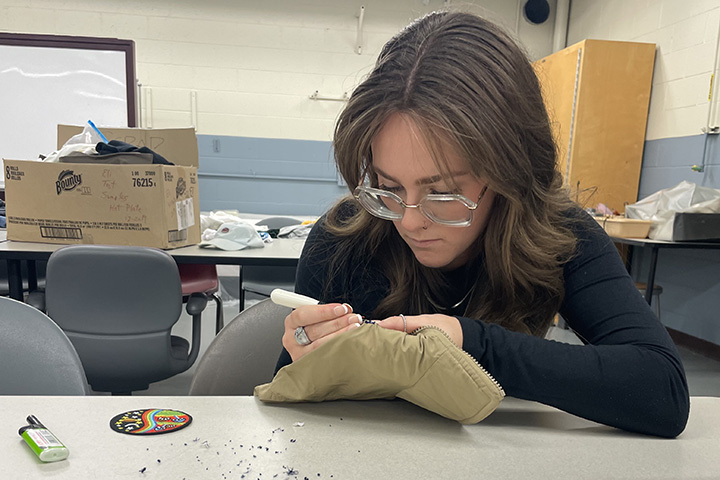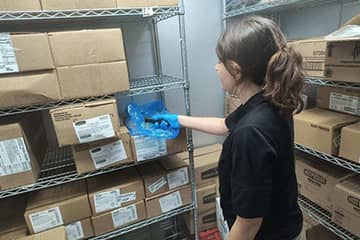Biology paper gains national attention
Research team evaluates impact of cannibalism of babies in cichlid fish
Jake Sawecki, a former biology graduate student, has published his research on filial cannibalism in cichlid fish. The research, published in Biology Letters, was completed during his time in the Dijkstra lab at CMU, and has been featured in National Geographic, New Scientist, Smithsonian Magazine, and the Canadian national news show As It Happens.
This study looked into the reproductive habits of Astatotilapia burtoni, a type of African cichlid fish. When cichlids have their babies, the mothers carry the babies around in their mouths for two or more weeks, until the baby fish are mature enough to swim freely. This form of parental care is known as mouthbrooding, and can be incredibly taxing on the mother, resulting in increased oxidative stress. Oxidative stress is when the amount of reactive oxygen metabolites (highly reactive forms of oxygen linked to DNA damage) overwhelms the available antioxidants, resulting in cell damage. Since the mothers can’t eat while mouthbrooding, there is an accumulation of reactive oxygen metabolites increasing oxidative stress in the mother.
Sawecki’s original focus was just on the oxidative stress levels of the mouthbrooding mothers at different stages of reproduction. However, as he observed the fish, he noticed that the number of eggs in the mothers' mouths was decreasing. After determining the mothers were eating their offspring, they were surprised to find that the more babies that were eaten by the mother, the greater antioxidant levels she had. They also compared mouthbrooding females to females that were not allowed to care for their young. Given the forced starvation during mouthbrooding, Sawecki and Dijkstra expected increased oxidative stress towards the end of mouthbrooding. However, to their surprise, oxidative stress increased only at the beginning of mouthbrooding, suggesting that the initiation of this behavior is particularly taxing on the mothers.
This study was developed and carried out in Sawecki’s second year as a master’s student at Central. When Sawecki began his master’s degree at Central, he didn’t know what he wanted to study, but knew that he loved fish, and this mouthbrooding behavior stood out to him. Although Sawecki has now completed his master’s degree, the research on filial cannibalism continues at the Dijkstra lab with undergraduate students Hailey Hartman and Howard Mitchell studying the impact of mothers eating their young as an antioxidant function.




